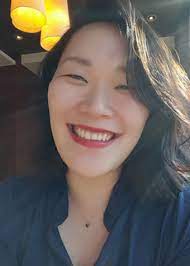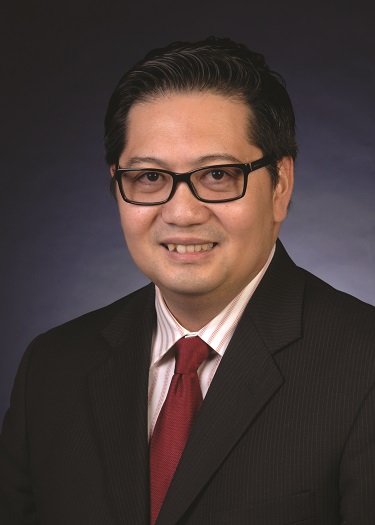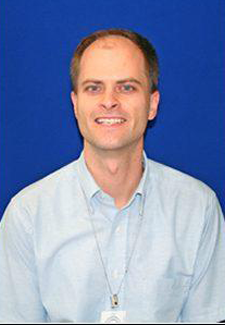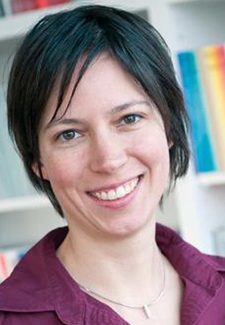Program
| The workshop will be hosted as part of Hybrid Hub at ACM e-Energy 2022 conference on Tuesday, June 28, 2022. Times listed in 1st column are Oldenburg, Germay local time (CET) (GMT + 1) and in 2nd column are in USA central time zone |
||
|---|---|---|
| UOL, Germany time | USA Central time | Agenda |
| 12:30 – 12:45 | 5:30 – 5:45 | Welcome and Registration |
| 12:45 – 13:00 | 5:45 – 6:00 | Introduction to the Workshop |
| 13:00 – 13:45 |
6:00 – 6:45 |
Keynote 1: Innovation in organizations and in societies Jannika Mattes (The University of Oldenburg) |
| 13:45 – 14:30 | 6:45 – 7:30 | Keynote 2: A comparative, sociotechnical design perspective on Responsible Innovation: multidisciplinary research and education on digitized energy and Automated Vehicles David J. Hess (Vanderbilt University) and Dasom Lee (University of Twente) |
| 14:30 – 14:45 | 7:30 – 7:45 | Break |
| 14:45 – 15:45 | 7:45 – 8:45 |
Workshop Paper Session |
| 14:45 – 15:15 | 7:45 – 8:15 |
Authors: Sabrina Paustian, Julia Köhlke, Jannika Mattes, Sebastian Lehnhoff |
| 15:15 – 15:45 | 8:15 – 8:45 |
Paper Title: E-Transit-Bench: Simulation Platform for Analyzing Electric Public Transit Bus Fleet Operations Authors: Rishav Sen, Alok Kumar Bharati, Seyedmehdi Khaleghian, Malini Ghosal, Michael Wilbur, Toan Tran, Philip Pugliese, Mina Sartipi, Himanshu Neema, Abhishek Dubey |
| 15:45 – 16:00 | 8:45 – 9:00 | Break |
| 16:00 – 17:30 | 9:00 – 10:30 | Panel Discussion: Regulations in the US and Germany and their impact on the research agenda |
| 17:30 – 17:45 | 10:30 – 10:45 | Closing Remarks |
ZOOM INFORMATION FOR VIRTUAL PARTICIPATION
Meeting ID: 293 478 9259
Password: DADES22
KEYNOTE SPEAKERS
Innovation in organizations and in societies
Jannika Mattes
 Professor of Organization and Innovation in the Department of Social Sciences at the University of Oldenburg, heads of an Emmy Noether research group on regional energy transitions
Professor of Organization and Innovation in the Department of Social Sciences at the University of Oldenburg, heads of an Emmy Noether research group on regional energy transitions

Dr. Mattes received her PhD at the University of Oldenburg in 2010 and completed longer research stays at the University of Uppsala, at the LSE in London and at CIRCLE in Lund. Regarding organizational innovation, she conducts research on collaborative innovation projects and the integration of diverse knowledge in inter-organizational and international settings. Regarding societal innovation, she has a regional focus on societal change particularly related to energy transitions. Her research has been published in journals such as Regional Studies, Energy Policy and European Management Journal.

A comparative, sociotechnical design perspective on Responsible Innovation: multidisciplinary research and education on digitized energy and Automated Vehicles
David J. Hess and Dasom Lee

David J. Hess
James Thornton Fant Chair in Sustainability Studies, Professor, Sociology Department and Communication of Science and Technology Program, Director, Program in Environmental and Sustainability Studies at Vanderbilt University
Dr. Hess' research and teaching is on the sociology, anthropology, and policy studies of science, technology, health, and the environment. He is the recipient of the Robert K. Merton Prize, the Diana Forsythe Prize, the Star-Nelkin Prize (shared with coauthors), the William H. Wiley Distinguished Faculty Award, and the General Anthropology Division Prize for Exemplary Cross-Field Scholarship. He has been a Fulbright scholar and the PI and Co-PI on grants from the National Science Foundation, National Institutes of Health, and FIPSE.

Dasom Lee

Assistant Professor in digitalized sustainable energy in the Department of Governance and Technology for Sustainability (CSTM) at University of Twente
Dr. Lee specializes in energy, cyber-physical systems, environmental sustainability, political sociology, and economic sociology. More specifically, her research focuses on governing and regulating newly emerging cyber-physical systems in the transportation and energy industries and understanding the processes of energy decentralization and energy democracy. She collaborates with engineers and computer scientists to analyze the impacts of energy and transportation systems on social issues such as sustainability, privacy, and equity. She received her PhD in Sociology with a minor in Quantitative Methods from Vanderbilt University, USA and a master’s degree in Economics from Kyoto University, Japan. Her scholarship has been published in journals such as Utilities Policy, Renewable and Sustainable Energy Reviews, and Environmental Innovation and Societal Transitions.
PANEL DISCUSSION
Regulations in the US and Germany and their impact on the research agenda
Panelists

Cuong Nguyen
Computer Scientist, U.S. National Institute of Standards and Technology
Topic: Translating Research Output to Inform Utility Regulators
Abstract:
This presentation will review the collaborative effort between NIST and National Association of Regulated Utility Commissioners (NARUC) to develop technical materials for the utility regulators community. In the U.S., NARUC members oversee the planning, siting, and deployment of energy resources, manage energy markets, create incentives, and approve the cost recovery of utility investments. The focus of this collaboration is to provide technology transfer for the results of NIST technical work for regulators to support their decision-making process. The team is focusing on developing training materials on the state of technology development and deployment, including interoperability, testing and certification, and cybersecurity challenges and solutions. The goal of the effort is to enable better decision making from the Commissions that could enable maximum benefit from smart grid investment for the public.
Bio:
Cuong Nguyen joined the National Institute of Standards and Technology (NIST) in 2010 and leads the Smart Grid Testing and Certification Project in the Smart Grid Program of the Communication Technology Laboratory. He works with industry to support standards-based interoperability test programs to help accelerate smart grid deployments, and he manages the NIST Smart Grid and Internet of Things (IoT) Infrastructure Testbeds. Cuong is the chair of the Smart Electric Power Alliance (SEPA) Testing and Certification Working Group (TCWG). In addition, Cuong coordinates international outreach efforts through bilateral and multilateral engagements.

David J. Hess
James Thornton Fant Chair in Sustainability Studies,
Professor, Sociology Department and Communication of Science and Technology Program,
Director, Program in Environmental and Sustainability Studies
Dasom Lee
Assistant Professor in digitalized sustainable energy in the Department of Governance and Technology for Sustainability (CSTM) at University of Twente
Topic: Comparative Privacy Regulations
Abstract:
Dr. Hess & Dasom Lee will talk about comparative research on privacy regulations in Europe and North America to show similarities and differences and emerging practices to address privacy concerns.

Dr. David Holmberg
Mechanical Engineer, U.S. National Institute of Standards and Technology
Topic: Advancing Transactive Energy for the Modern Grid and the impact of Power Grid Regulations on Research
Abstract:
This presentation will review the impact of power grid regulations on advancing new approaches of integrating customer DER into the grid along with NIST efforts to address these challenges. My research goal is to advance understanding of the best approaches for integrating distributed energy resources (PV, smart loads, batteries) into grid operations, especially considering dynamic price tariffs and retail markets. Current U.S. electric grid regulations do not necessarily support the best approaches, leading to difficulty for companies to implement modern standards and tools while making a profit. This has led to our institution supporting regulatory reform in addition to technical research and standards development. In particular, I will share about our current efforts in collaboration with the Smart Electric Power Alliance to develop a guide for regulators to help move modern regulations to support the technical advances.
Bio:
Dr. David G. Holmberg serves as a mechanical engineer in the NIST Engineering Laboratory, Building Energy and Environment Division, with work focused on building integration with the Smart Grid. Dr. Holmberg is using the NIST UCEF co-simulation platform to study transactive energy (TE) approaches for the integration of customer distributed energy resources (PV, batteries, and loads) into the electric grid. He serves as Vice Chair of the SEPA TE Working Group, co-chair of the SEPA Energy Services Interface Task Force working toward solutions for the electric industry, convener of the Smart Grid Working Group of the ASHRAE BACnet committee, and co-chair of OASIS Energy Interoperation technical committee working on the Common Transactive Services profile, advancing standards for a transactive grid.

Panelist:
Dr. Jannika Mattes
Professor of Organization and Innovation in the Department of Social Sciences at the University of Oldenburg
Topic: Innovation in organizations and in societies
Abstract:
Technological Innovations, among them autonomous and digitalized energy systems, are invented, implemented, and enacted in their societal setting. This keynote outlines societally embedded digital systems and illustrates their role for technology development and implementation. International differences in culture, language and institutional set-up hence lead to specific challenges in the innovation process. At the same time, societies are heterogeneous in themselves. Different organizations with contradicting logics and set-ups participate in complex innovation projects and bring in not only heterogeneous knowledge, but also contradicting expectations about the development process and the possible application of new technologies.
Dr. Mattes will talk about the inherent challenges of IT development that are intertwined with, but nonetheless added to, technical challenges. It thereby complements theoretical insights from organizational sociology and sociology of technology with empirical findings from the field of smart grid development and the role of IT standards in such a complex innovation process. The findings show that social challenges present key obstacles for energy transitions and underline the need to understand these factors and take them into account more thoroughly if we want to speed up energy transition.






